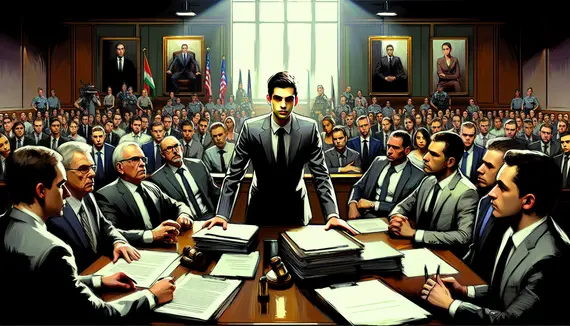
Apple's Legal Battle Over iOS Leaks
Apple has once again drawn a line in the sand when it comes to protecting its intellectual property. Known for its secrecy and stringent policies around its products and upcoming features, Apple has initiated legal proceedings against Jon Prosser, a well-known tech analyst, for allegedly leaking sensitive details about iOS.
Background on the Lawsuit
In recent years, Jon Prosser has gained notoriety in the tech community for his uncanny ability to predict and reveal Apple’s upcoming releases. While some cheer him on for providing insights into the tech giant's plans, Apple views these leaks as detrimental to its business and innovation reputation.
According to Apple, Prosser allegedly received documentation that he was not authorized to see, which included trade secrets related to its iOS 16 operating system. This legal move is not just a step to protect its software details, but also acts as a stern warning to others who might think of breaching the company’s coveted vault of secrets.
Why Leaks Are a Serious Matter for Apple
For a company like Apple, whose brand thrives on secrecy and surprise, leaks are not just minor inconveniences but can potentially undercut its competitive edge. Apple argues that such leaks could impact stock prices, give competitors unfair advantages, and diminish the buzz they carefully construct through planned product announcements.
- Stock Market Implications: Leaks could lead to fluctuations in stock prices as investors react to rumors and unverified information.
- Competitive Advantage: Rivals may gain insights into Apple's innovations and strategies, allowing them to adapt or counter with their own developments.
- Marketing and Hype: Apple's strategy often involves building anticipation through surprise, a method that requires tightly controlled information.
Who Is Jon Prosser?
Jon Prosser is a prominent figure in the tech world, best known for his insights and predictions about upcoming tech launches. Operating primarily through his YouTube channel and Twitter, Prosser has built a reputation for acquiring early peeks into tech products, especially those from Apple.
His followers admire his transparency and eagerness to share insider information. However, this same trait that endears him to fans makes him a target for Apple's legal team. He insists on his sources' confidentiality, often stating that he prioritizes the protection of those who feed him information.
Legal Perspectives and Potential Consequences
The lawsuit against Prosser sends a clear warning that Apple intends to use the full weight of the law to protect its intellectual property. The tech giant often integrates non-disclosure agreements (NDAs) into its contracts to prevent leaks, and breaching these contracts carries serious legal consequences.
- Legal Precedent: This case could set a precedent for how leaks are handled legally and what constitutes a trade secret violation.
- Penalties: If Apple succeeds, Prosser could face substantial financial penalties and be forced to disclose his information sources, impacting his future career.
- Industry Impact: This case could serve as a deterrent for other leakers, shifting the landscape around how tech news is reported.
Community Reactions and Public Opinion
The tech community is sharply divided in its response. While some criticize Apple for its aggressive tactics, others understand the necessity of such actions to maintain their competitive edge and protect intellectual property. Leaking sensitive information is often seen as an ethical conundrum in tech journalism, balancing public interest with proprietary rights.
Numerous debates have surfaced about the freedom of information, the role of tech journalists, and the ethical boundaries of reporting unannounced products. The discourse raises important questions about where the line should be drawn in an industry propelled by innovation and consumer anticipation.
Looking Forward: The Changing Landscape
Apple's legal battle with Jon Prosser is not just a clash over a specific leak but rather an escalating issue in an era where information is rapidly disseminated through social platforms. As companies like Apple strive to maintain control over their innovations, the dynamics between tech companies and independent reporters are bound to evolve.
Transparency vs. Secrecy: The ongoing push and pull between being open with consumers while maintaining trade secrecy is likely to intensify. Companies will need to navigate this delicate balance as consumer demand for transparency grows.
Legal Frameworks: As more such cases emerge, legal frameworks and policies may need to adapt accordingly to keep up with the fast-paced world of technology.
Ethical Journalism: In a bid to ensure responsible reporting, journalists and analysts will continue to grapple with ethical standards, exploring how far they should go in unveiling corporate secrets.
Conclusion: A Story with More Chapters to Come
As the legal dust settles, this case is set to be a landmark in understanding how companies like Apple approach the protection of their intellectual property in a hyper-connected world. While Prosser's fans might view him as a champion of transparency, Apple is unwavering in its commitment to safeguarding its secrets.
This story serves as a substantive example of the tensions between brand protection and the public's thirst for inside information, setting the stage for new norms in how such battles are fought in the digital age. Whatever the outcome, it is undoubtedly a pivotal moment in the intersection of technology, law, and journalistic freedom.









